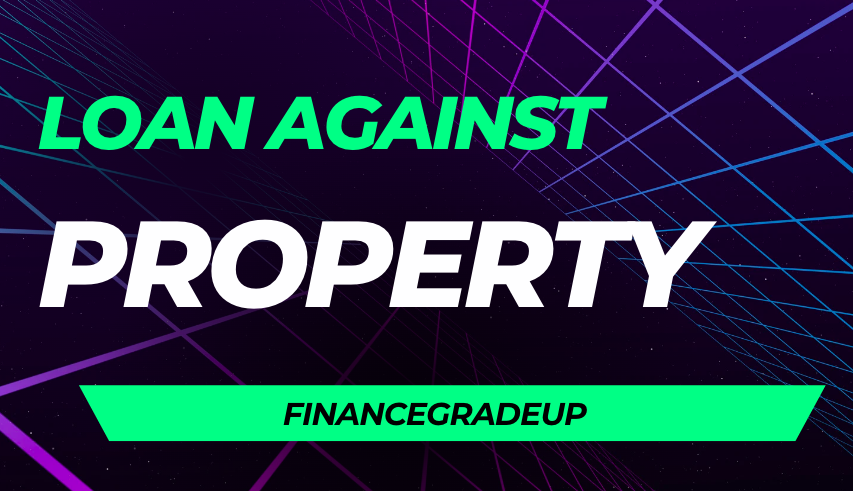Individuals often find themselves juggling multiple debts, ranging from credit card balances to personal loans. Debt consolidation emerges as a strategic move to streamline finances and alleviate the burden of various outstanding obligations. One effective method to achieve this is by opting for a loan against property. In this comprehensive guide, we’ll explore the benefits of utilizing this loan for debt consolidation and the crucial considerations borrowers should bear in mind.
Contents
Understanding Loan Against Property
A loan against property is a secured loan where borrowers pledge their property – residential or commercial – as collateral to obtain funds from a lender. The loan amount is determined based on the property’s market value and the borrower’s repayment capacity. This financial tool offers the flexibility to use the funds for various purposes, making it an ideal choice for debt consolidation.
Benefits of Using Loan Against Property for Debt Consolidation
Provided here are some benefits of opting for a loan against a property when looking to consolidate your debts:
1. Lower Interest Rates:
- An advantage of this loan is that the loan against property interest rates are relatively lower compared to unsecured loans like personal loans or credit cards.
- By consolidating high-interest debts into a loan against property with a lower interest rate, borrowers can significantly reduce the overall cost of servicing their debts.
2. Extended Repayment Tenure:
- Loans against property typically come with longer repayment tenures, allowing borrowers to spread their repayments over an extended period.
- This extended tenure can result in lower monthly installments, offering borrowers a more manageable and sustainable repayment structure.
3. Larger Loan Amounts:
- The loan amount sanctioned under these loans is often higher compared to other forms of unsecured loans, providing borrowers with the opportunity to address multiple debts simultaneously.
- This larger amount can be instrumental in consolidating various high-ticket loans and credit card balances.
4. Flexibility:
- Unlike specific purpose loans, loan against property provides borrowers with the flexibility to use the funds for debt consolidation as well as other financial needs.
- Borrowers can strategically allocate the funds to pay off high-interest debts, creating a more efficient and cost-effective repayment plan.
5. Preservation of Credit Score:
- Timely repayment of the consolidated loan helps in preserving or even improving the borrower’s credit score.
- The disciplined repayment of existing debts through such consolidation demonstrates financial responsibility, positively impacting the creditworthiness of the borrower.
Considerations When Applying for Loan Against Property for Debt Consolidation
Here are some things to keep in mind when consolidating debts with the help of a loan against property:
1. Property Valuation:
- Before opting for such a loan, it is crucial to assess the market value of the property being pledged.
- Lenders typically determine the loan amount based on a percentage of the property’s value, and borrowers should ensure that this valuation aligns with their financial requirements.
2. Loan-to-Value Ratio:
- The Loan-to-value (LTV) ratio represents the proportion of the property’s value that the financial institution is willing to lend.
- Borrowers should be aware of the maximum LTV ratio allowed by the lender and assess whether it meets their funding needs.
3. Repayment Capacity:
- Even though loan against property interest rates are quite low, borrowers must carefully evaluate their repayment capacity.
- Assessing monthly cash flows and budgeting for the extended or reduced tenure is crucial to ensuring that repayments remain manageable throughout the loan term.
4. Associated Costs:
- Borrowers should be mindful of the associated costs, including processing fees, administrative charges, and any prepayment penalties.
- Understanding these costs is essential for conducting a comprehensive cost-benefit analysis and avoiding any surprises during the loan tenure.
5. Impact on Credit Score:
- While a loan against property can positively impact a credit score through disciplined repayments, borrowers must be cautious about the potential consequences of default.
- Failing to meet repayments can result in a drop in the borrower’s credit score and eventually even in the loss of the pledged property.
6. Market Conditions:
- Monitoring economic and real estate market conditions is vital when opting for this loan.
- Fluctuations in property values or changes in interest rates can impact the overall cost and feasibility of using a property as collateral.
Scenarios Where This Financial Move May Be Beneficial
1. High-Interest Debt Accumulation:
- A secured loan like a loan against property can be a great way to consolidate high-interest debts.
- These loans help save considerable amounts on interest charges, reducing the overall cost of the debts.
2. Need for Liquidity:
- Individuals facing a cash crunch or needing immediate funds for a significant financial requirement can leverage loans against property.
- By consolidating existing debts, borrowers can free up liquidity for other essential financial goals.
3. Desire for Streamlined Repayment:
- For those looking to simplify their financial management and streamline repayments, this financial move is a great option. It enables the borrower to consolidate various debts into a single monthly installment.
- This streamlined approach can enhance financial discipline and reduce the risk of missing payments.
4. Preserving Credit Score:
- Borrowers seeking to preserve or improve their credit score can use loans against property strategically.
- Timely repayments on the consolidated loan contribute positively to the borrower’s creditworthiness.
5. Long-Term Financial Planning:
- Individuals with a comprehensive long-term financial plan may find loans against property beneficial.
- The lower interest rates, extended tenures, and larger loan amounts can align with strategic financial goals and debt management strategies.
Conclusion
Leveraging a loan against property for debt consolidation is a strategic financial move that can yield significant benefits when done thoughtfully. The lower interest rates, flexible tenures, and larger loan amounts offer borrowers the resources needed to effectively manage and reduce multiple debts.
However, careful consideration of property valuation, associated costs, and repayment capacity is essential. When utilized judiciously, a loan against property can be a powerful tool for achieving financial stability and easing the burden of financial obligations.

I am Arjun Kumar. I am the owner and administrator of Finance Gradeup. I have completed my education in Arts & Technology. Arjun Kumar usually has interests in playing games, reading and writing. He was a brilliant student during his college days. He also works for many private companies, but the main interest of Arjun Kumar is digital marketing. He thinks that reading is a must before providing any quality information to his readers. You can find Arjun Kumar on much social media handles online, or you can learn more about him in about us page.




